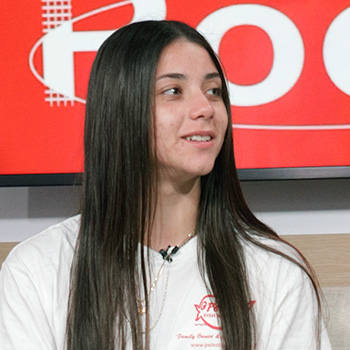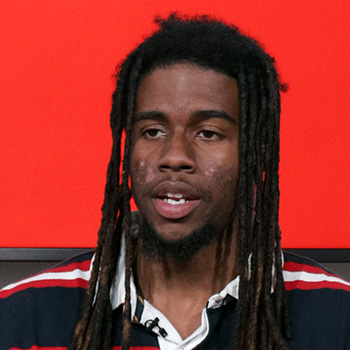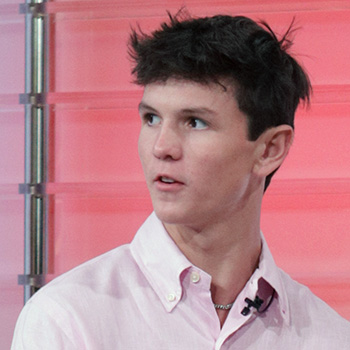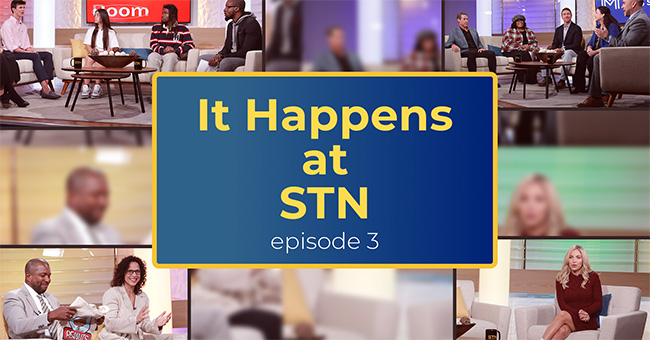Any discussion about the mental health and well-being of the younger generations must include some in-depth analysis of the impacts, both positive and negative, of social media.
The proliferation of sites like TikTok, Twitter, Facebook, Instagram and others has Generation Z more plugged into what is popular than any generation before them. That comes along with some potentially serious pitfalls, including increased risks of depression and higher rates of suicide.
For the first time this season, young adults take to the STN stage for an important discussion about the effects of social media on how they see the world and how they see themselves.
Action Panelists

- Kayla McNatt
- Student
- North High School

- Atllas Hopkins
- Co-Founder
- SEED

- Will Posorske
- Vice President
- Swift Teen Leadership Board
This Month's Panel
Kayla McNatt
Student
North High School
Atllas Hopkins
Co-Founder
SEED
Will Posorske
Vice President
Swift Teen Leadership Board
A Public Health Concern
Research has shown that young adults who use social media are three times as likely to suffer from depression — putting a large portion of the population at risk for suicidal thoughts and behaviors.
University of Utah Huntsman Mental Health Institute, September 2022
When you think about your mental health and well-being, what role does social media play in it? Does it desensitize you? Does it alter how you look at the world?

"For me, cyber and social wellness kind of goes along the lines of self-image. How you see yourself and how you portray yourself online. Whether it's through [your] posts or through [your] tweets or [your] Snapchat stories, or whatever the case may be."
Atllas Hopkins
"I would add to that: what others post and what you see on social media. Since we do live in Phoenix, we see homeless people, fights, a lot of fights, a lot of drama. Nothing really positive. There is positive stuff but not as much. So, I would say that has impacted me to be like, 'that's okay and that's normal for everyone,' when really it's not."
Kayla McNatt
"These social media platforms are designed to keep you engaged. You could sit down after school and just want to scroll through TikTok for 10 minutes but you end up being on your phone for an hour-and-a-half. It's designed to do that. It is able to take away some of the priorities from teens and just keep them focused on entertainment. That definitely sucks teens in and kind of keeps them distracted from other things."
Will Posorske
When you think of the impact social media has on your mental state do you feel it is teaching you to love yourself? Or is it teaching you how to love what other people have?

"I feel like it's mainly teaching you how to love what other people have. It really shows you what people want you to see. So, if you think to yourself, 'why don't I have what they have?' Or, 'why am I not as up as they are?' That kind of brings you down if you let it. "
Kayla McNatt
"I've learned a lot about influencer culture. This idea that mainstream influencers who have a huge following post about their lifestyle, which is not likely for teens to live. But teens kind of rely on them and listen to their opinions and take their advice for everything. When they find out that they can't live the same lifestyle that these influencers are living, it becomes toxic. That is a lot more common than I think a lot of people realize."
Will Posorske
"Being a college student, I frequently see people going out to bars, or wherever the case may be, and really enjoying themselves. Most of the time I am doing homework or I am doing something productive. And so seeing all the glitz and glamour, all the flashy lights and cool outfits, it can definitely get to a person. I feel like it's just all about your own perspective and how you interpret what they're doing and have that self-realization about what social media really is."
Atllas Hopkins
We’ve talked a lot about the potential negative impacts of social media. What do you think are the pros of social media? How do you see it being used as a tool for good?

"I think social media promotes a lot of self-expression, which is very important in today's day. And it's a platform. It creates communities. It allows you to reach out to other people, build relationships, and build friendships. You can run businesses on social media now."
Will Posorske
"It brings awareness to certain topics. Whether it's negative or positive or political or recreational. Social media definitely offers a lot of exposure to media outlets, content creators, and just your everyday person that's on there. So I definitely do think that there are many benefits, but definitely one of the main ones is the ability to provide exposure to certain things."
Atllas Hopkins
"If you can be motivated by some people's work or their accomplishments or what they're doing, I say that's a big pro because you can maybe look up to someone or look up to an influencer."
Kayla McNatt



